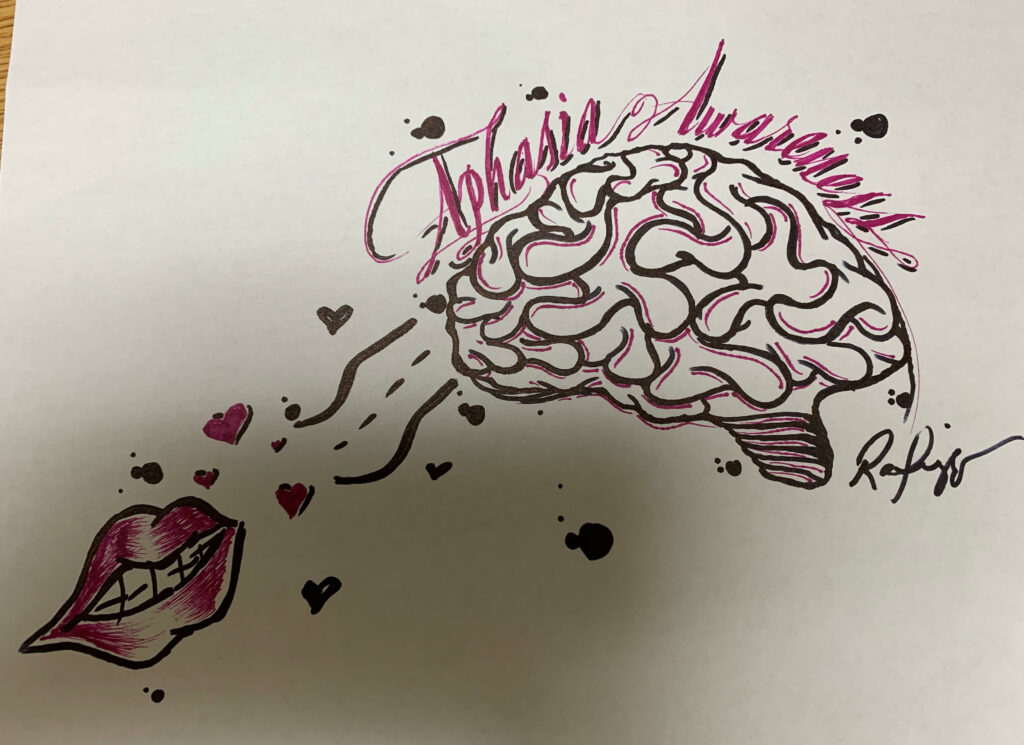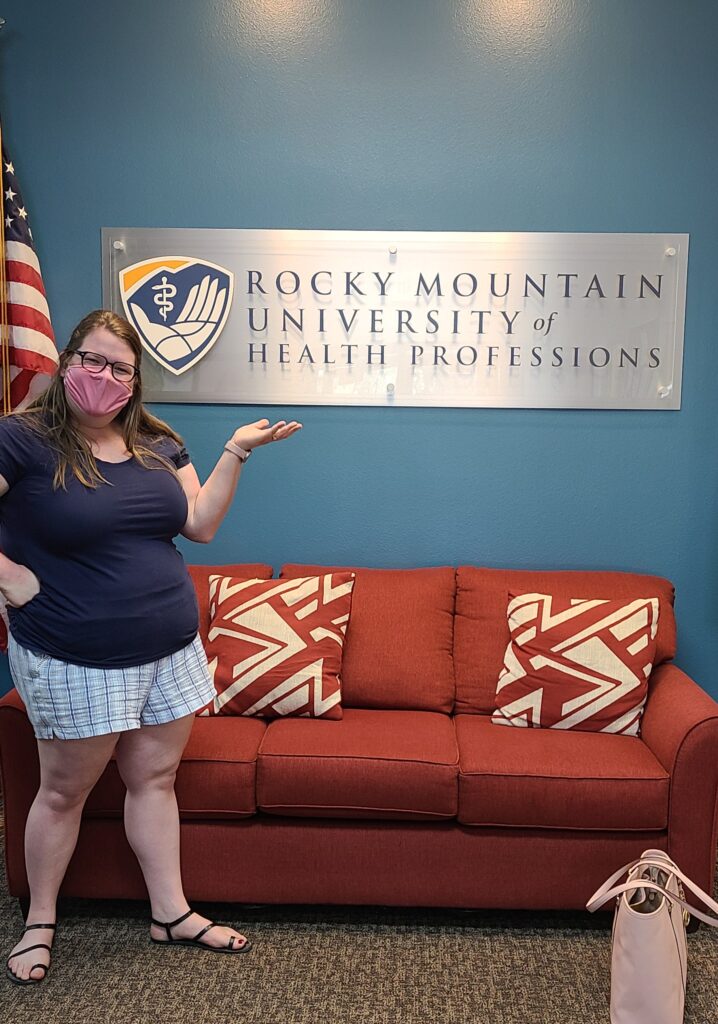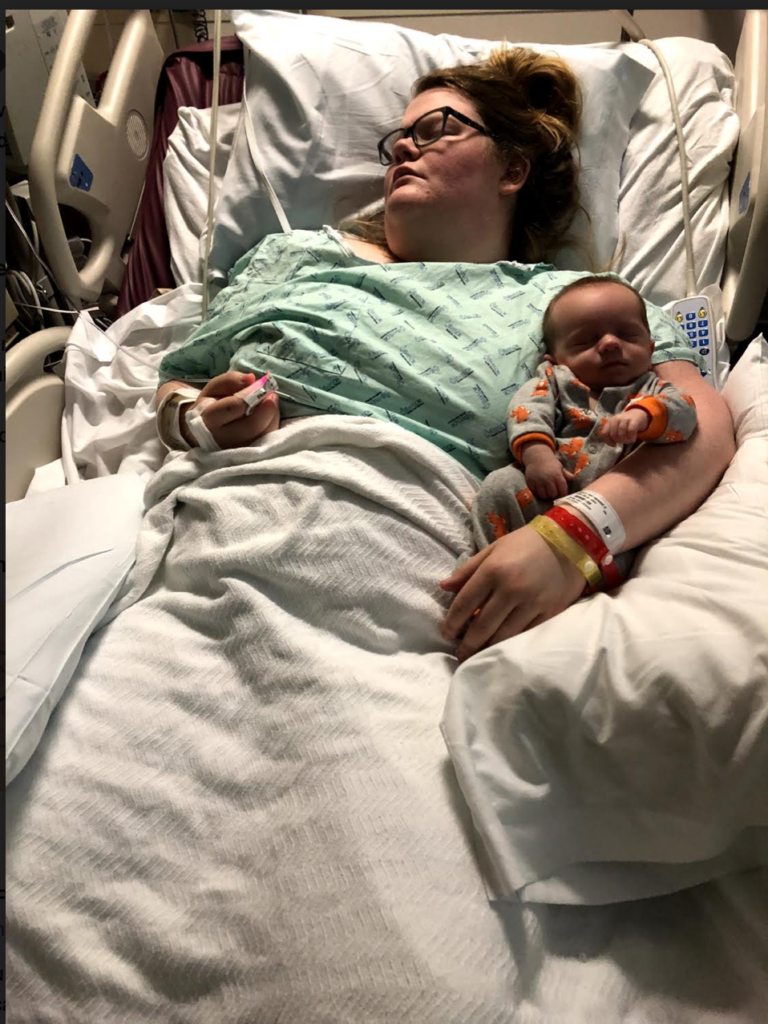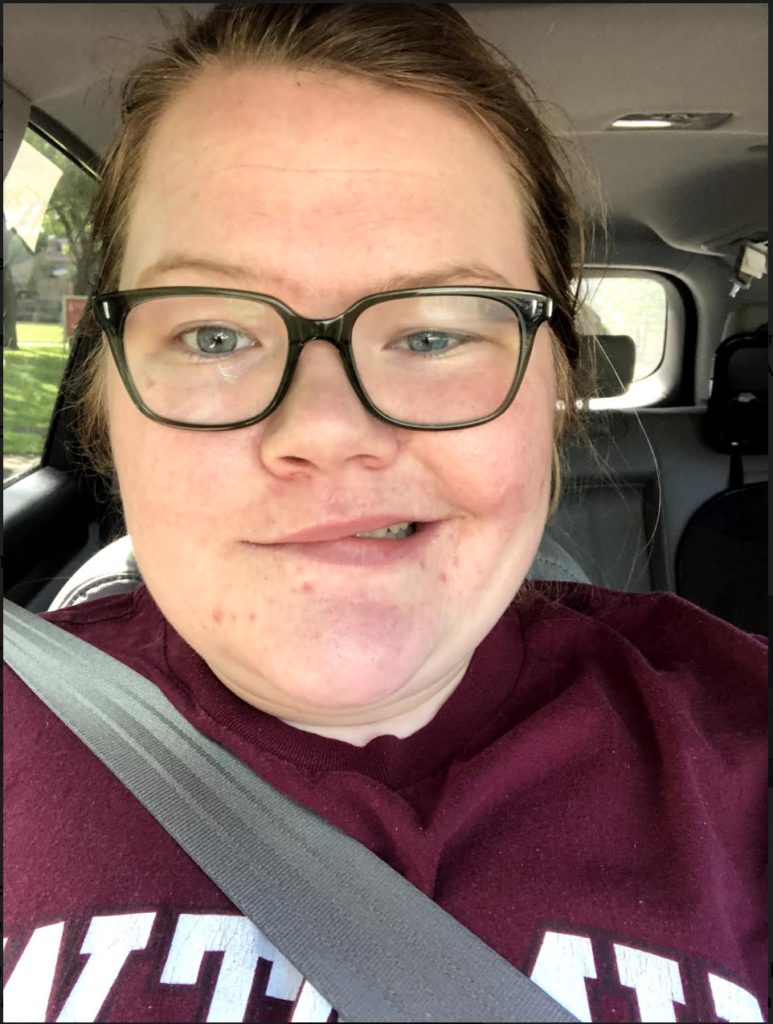Welcome to the Aphasia Threads Project, which usually weaves together three points-of-view: people with aphasia, caregivers, and the professionals who help each family navigate aphasia. Each week, we bring together three unrelated stories, one from each member of this triad, to learn from their experience. Yet this week, all three stories come from people with aphasia.
This week, we’ll hear from Rafiyq, Paula, and Katherine, three people with aphasia.

Person with Aphasia
I had a stroke in March 2020.

Aphasia Changes Your Life
There’s stuff I don’t know anymore. I’m trying to get the words out, but it’s hard. It bothers me so bad. I know it’s going to be better, but it’s slow.
But There Are Things That Help
Drawing and describing the words I can’t think of.
And Things You Learn Along the Way
Find peace, re-learn to talk with time and therapy.
What Caregivers and Professionals Can Learn From Me
FaceTime with loved ones if you can’t connect in person.
You are good people. I appreciate you. I’m thankful for everything. Martial arts and drawing give me peace.

Person with Aphasia
I had a stroke on January 1, 2021, and I have been dealing with aphasia since then. I’ve been working with a speech-language therapist and work on my own as much as I can to regain fluency.
I’ve been able to recover much of my language, but it’s still not reliable. Even if I think I’ve got the words rehearsed in my brain, I don’t always say the words I’m trying to say correctly. I’m trying to learn strategies to correct my speech before I say it aloud, which means I speak slower than I did before.
Aphasia Changes Your Life
My days are slower. I can’t do as much as I did before, and I get tired more easily. I try to do what I did before, though, but build in much more time to accomplish them.
My relationship with my daughter is much better than before. We still talk every day through Zoom because we practice memory drills after catching up on what is happening. She has helped me a lot, and I am modeling resiliency for her as she watches me push for recovery.
But There Are Things That Help
I read articles aloud every day by myself. It helps me learn to articulate words again.
And Things You Learn Along the Way
You will get better. Keep working on it every day.
What Caregivers and Professionals Can Learn From Me
My personality and my independence didn’t change because of having aphasia. I wish that professionals would stop perceiving and treating me as if I was a “patient.” I had a really bad experience in the hospital after my stroke. I couldn’t speak clearly, so I got treated as if I was a child or as if I had dementia by the nurses. I did not feel listened to or respected by most of the people who were caring for me. It is a nightmare for someone with aphasia to be treated that way.
I wish professionals/caretakers would take their cue from me instead of trying to impose their ideas of how I should recover on me. It’s exhausting and controlling.

Person with Aphasia
My son was 7 weeks old. We’d recently come home from the NICU when I lost the ability to use my right arm. It went numb. Long story short, I discovered I’d had a series of strokes. Then, we found out I had an incurable brain disease called Moyamoya.
Over the course of 8 weeks, I had 8 pretty intense strokes. The aphasia came after the second major one while in the Neuro ICU. Instead of “Katherine,” my name came out like “Thrinkinets.”

Aphasia Changes Your Life
Now, I’m in graduate school to become a medical SLP and (hopefully) work with other adults like me – who had their whole world turned upside down and are trying to make sense of this new diagnosis.
My husband and young son (3) (and now daughter – 18 months) have had to learn to give me time to process things when we talk. It has been difficult because we feel like we never got time to be together before my brain threw a 180 on us and we had to adapt. I know the “old me” is in here somewhere, but it takes time to get the words right.
Several of the people in my graduate program have said, “You don’t look like you have had 10 strokes.” Or “You don’t have a problem with speaking.” Aphasia is an invisible disease, more times than not. And now, I feel like it’s my job to help people with aphasia show that they, too, are competent and have so many wonderful things to offer the world.
But There Are Things That Help
My SLP, Tiffanie, taught me to circumlocute – to talk around the word. Now, when I’m trying to talk, I’ve gotten pretty proficient at it so that most people don’t even notice.
With my processing disorder, I’ve learned to advocate for myself, saying, “I know this, give me a moment to process what I want to say” or “Can you repeat that again?” or “Would you be willing to slow down?” or “Can we turn off the TV/radio/noise so that I can focus on what you’re saying?”
And Things You Learn Along the Way
I know you know. Take your time. It is going to be a long journey, but you’re not alone. We are all in this together. I’m on your team.

What Caregivers and Professionals Can Learn From Me
Aphasia is more than just a loss of words. It’s a loss of everything we once were – or so it feels. Be patient. Don’t get frustrated. And please, don’t interrupt us.
Aphasia is life-long. It may not look it, but we are struggling within ourselves because often we THINK so much more than we SAY.


Want to Be Featured in a Future Article?
Aphasia Threads is an on-going project created by the National Aphasia Association. If you’d like to be featured, don’t leave a comment.
Instead, please read the opening post for more information or fill out our form and we’ll contact you.



